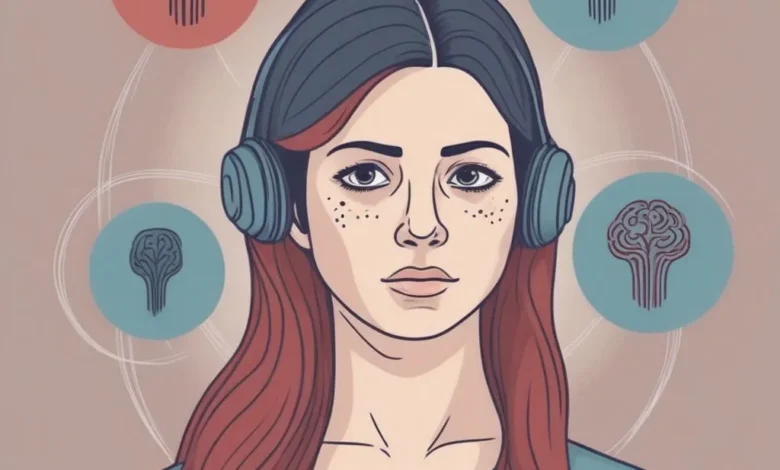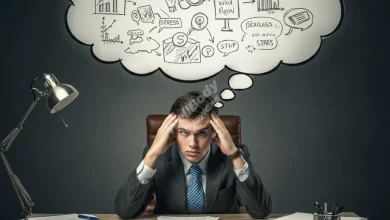Understanding the Psychology Behind Your Anxiety: A Deep Dive

Anxiety is a common experience that can impact our daily lives in various ways. Understanding the psychology behind anxiety is crucial in managing and overcoming its effects. This deep dive into the roots of anxiety aims to shed light on the intricate workings of the mind and emotions that contribute to this complex phenomenon.
The Basics of Anxiety
Anxiety is a natural response to stress or perceived threats. It triggers a cascade of physiological and psychological reactions that prepare us to face danger or challenges. However, when anxiety becomes excessive or persistent, it can interfere with our well-being and functioning.
Types of Anxiety Disorders
There are several types of anxiety disorders, each with its unique features and symptoms. Here is a table summarizing the most common types:
| Type of Anxiety Disorder | Description |
|---|---|
| Generalized Anxiety Disorder (GAD) | Excessive worry and anxiety about various aspects of life |
| Panic Disorder | Sudden and intense episodes of fear or panic |
| Social Anxiety Disorder | Fear of social situations and interactions |
| Phobias | Irrational fear of specific objects or situations |
Causes of Anxiety
Anxiety can have multiple causes, including genetic predisposition, brain chemistry, personality traits, and life experiences. Understanding these factors can help individuals identify potential triggers and develop coping strategies to manage their anxiety effectively.
The Role of Cognitive Distortions
Cognitive distortions are irrational thought patterns that contribute to anxiety. Examples of cognitive distortions include black-and-white thinking, catastrophizing, and overgeneralization. Identifying and challenging these distortions through cognitive-behavioral therapy can help individuals reframe their thinking and reduce anxiety levels.
Effects of Anxiety on the Body
Anxiety not only affects our mental state but also has physical manifestations. Common physical symptoms of anxiety include rapid heartbeat, sweating, trembling, and gastrointestinal issues. Chronic anxiety can also weaken the immune system and increase the risk of developing other health conditions.
Strategies for Managing Anxiety
Managing anxiety involves a combination of lifestyle changes, relaxation techniques, therapy, and medication. Some effective strategies for managing anxiety include:
- Deep breathing exercises
- Mindfulness meditation
- Regular exercise
- Healthy diet
- Seeking professional help
The Connection Between Anxiety and Depression
Anxiety and depression often coexist, sharing similar underlying mechanisms and risk factors. Individuals with anxiety disorders are at a higher risk of developing depression, and vice versa. Understanding the relationship between anxiety and depression is essential for accurate diagnosis and treatment planning.
Impact of Anxiety on Relationships
Anxiety can strain relationships with family, friends, and romantic partners. Communication breakdowns, avoidance behaviors, and excessive reassurance-seeking are common patterns that can arise due to anxiety. Seeking couples or family therapy can help address these relationship challenges and improve communication.
Coping with Anxiety at Work
Anxiety at work can affect job performance, productivity, and overall well-being. Employers can support employees by creating a supportive work environment, offering mental health resources, and promoting a healthy work-life balance. Employees can also benefit from stress management techniques and open communication about their anxiety with supervisors.
Seeking Professional Help
If anxiety significantly impacts your daily life and functioning, seeking help from a mental health professional is crucial. Therapists, counselors, and psychiatrists can provide tailored treatment plans, including therapy, medication, and other interventions to help you manage your anxiety effectively.
FAQ
What are the common symptoms of anxiety?
Common symptoms of anxiety include excessive worry, restlessness, irritability, muscle tension, difficulty concentrating, and sleep disturbances.
How can I differentiate between normal anxiety and an anxiety disorder?
Normal anxiety is a temporary response to stress, while an anxiety disorder involves excessive and persistent anxiety that interferes with daily life.
When should I seek professional help for my anxiety?
You should consider seeking professional help for anxiety if it significantly impacts your daily functioning, relationships, or quality of life.
Key Takeaways
Understanding the psychology behind anxiety is essential for effectively managing and overcoming this common mental health issue. By recognizing the causes, types, and effects of anxiety, individuals can develop personalized strategies and seek appropriate support to improve their well-being. It’s crucial to address anxiety holistically, considering its physical, emotional, and social impacts, and to seek professional help when needed.



